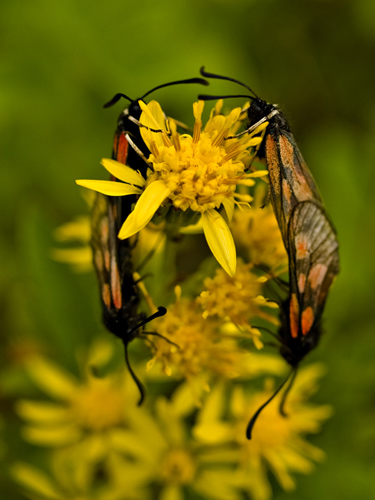Archive for the Environment Category
Illegal logging is a big problem in Mexico with over 64,000 acres (26,000 hectares) being chopped down every year. This makes Mexico one of the countries that are loosing their forests at the most rapid speed.
Last week Mexicans all over the country planted over 8 million trees trying to counteract some of the destruction of the Mexican forests.
The planting was done by volunteers and even the Mexican President, Felipe Calderon, planted a tree (although that sounds like a big PR stunt to me).
There were some criticism from Greenpeace because they believe that the tree planting will not solve anything and the government should do more to stop the illegal logging.
I agree with Greenpeace, but I find it positive that the Mexican government is showing positive signs of taking more care of the environment.
A new study from FAO (Food and Agriculture Organization of the United Nations) conclude that land degradation is an increasing problem in big parts of the world. The study has been ongoing for 20 years and show that more than 20 percent of all cultivated areas, 30 percent of forests and 10 percent of grasslands are undergoing degradation.
This is a big problem as 1.5 billion people depends on the land that is degrading and this can cause starvation for the people involved. This in turn can cause mass migration and destabilization.
Something that would help on land erosion is turning bigger parts of the agriculture industry to organic farming as this type of farming cares about erosion.
According to an article on cnn.com there are some worrying things happening here in the arctic. Scientists from the National Snow and Ice Data Center in Boulder, USA claims that arctic sea ice might totally melt away in September.
During the last decades the Arctic ice has become thinner and thinner each year. Looks like it might totally disappear this summer, but it depends on what kind of weather the north will get.
This is good news for the greedy oil companies as this makes it easier to search for oil and gas in the arctic. I know that Statoil (the biggest oil company here in Norway) has made plans on drilling in the north. I hope our politicians have the guts to stop the madness before it is too late, but I doubt it as they are allowing drilling for oil in the sea right outside of Northern Norway where the big fish stocks are living.
The last few years the sea temperature has been pretty high here in Northern Norway, resulting in blooming of algae and jellyfish. This seems to have messed with the fish populations in the fjord where I live, as the big shoals of fish did not arrive during the summer like they usually do.
I hope the fishing will be better this summer, but this research might be an indicator of bad fishing.
Some truly great news from the U.S! The state of Florida has done a deal with US Sugar Corp that owns 800sq km (300sq miles) of land in the Everglades. The company will sell the land for $1.75bn to the authorities and then the land will be turned back into wetland.
US Sugar Corp used the land to grow sugar cane and it will end the the growing in six years.
The sugar cane industry has been blamed for destroying the unique environment in Everglades so this turn of events will probably help the ecosystem a great deal.
Lets hope other states and governments will do the same thing in the future.
According to WWF the dead zones in the Baltic Sea are growing. 7 of the 10 biggest dead zones are actually found in the Baltic Sea, according to a scientist at the World Resource Institute.
But these dead zones are growing all over the world as research has show that around 4/5ths of the US coast and 2/3rds of Europe’s coasts are threatened by dead zones.
The dead zones occur because of an increase in chemical nutrients in the water. The main “sinners” of this kind of pollution are agriculture, human sewage, urban runoff, industrial effluent, and fossil fuel combustion. The excessive nutrients cause algae blossoms and this in turn makes the oceans (or lakes) depleted of oxygen. In these dead zones all marine life dies.
Sounds like it is time to turn more agriculture into organic farming as organic farming does not produce so much excessive nutrients that can run off into our oceans.
I found some more depressive news about our oceans. According to an article on discovery.com we are seeing increasing amounts of jellyfish in our oceans. Researchers believe the reason for this is overfishing and global warming.
The amount of jellyfish is a good indicator of how life in oceans change. The larger species feed on jellyfish and when these species are becoming less numerous the jellyfish are able to grow. Jellyfish also compete with other species about food sources like small fish and zooplankton so when there are large number of jellyfish in the ocean it is able to hurt the regrowth of other species.
One other reason that jellyfish is getting the upper hand is the rising ocean temperature as jellyfish are able reproduce for a longer period of time.
The growing numbers of jellyfish has been observed all over the world and especially in parts of the oceans where there is heavy fishing going on, like off the coast of Namibia.
I have also observed unusually large numbers of jellyfish here in Northern Norway. I hope this is a part of their natural circle and not a sign of a failing ecosystem..
Sounds like the Brazilian government is taking a step in the right direction. The Brazilian environment minister has come to an agreement with the grain industry to stop buying soy farmed on deforested land in the Amazon rainforest. The same kind of deal is planned for timber and beef industry.
I really hope this will slow down the deforestation of the Amazon as the deforestation has picked up this year after a few years of declining. In April 434 square miles of trees were cut down in the Amazon rainforest so something need to be done ASAP.
The current food crisis in the world will make it hard to protect the rainforests..



